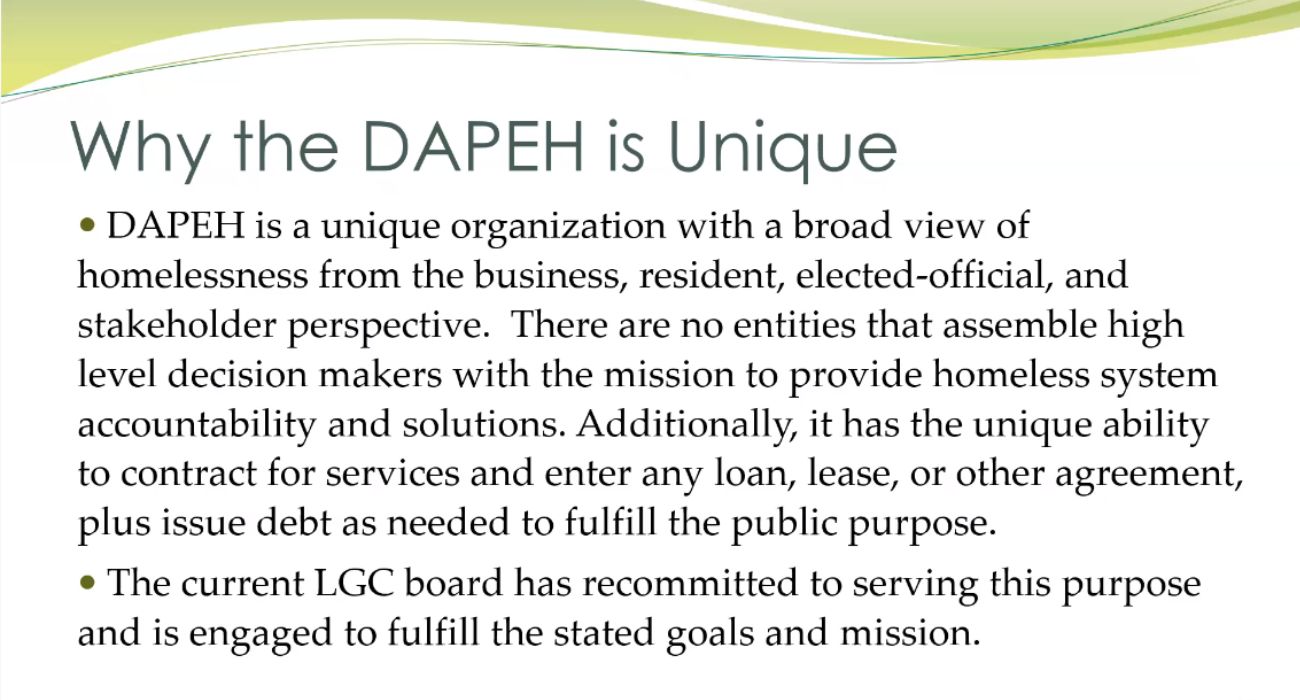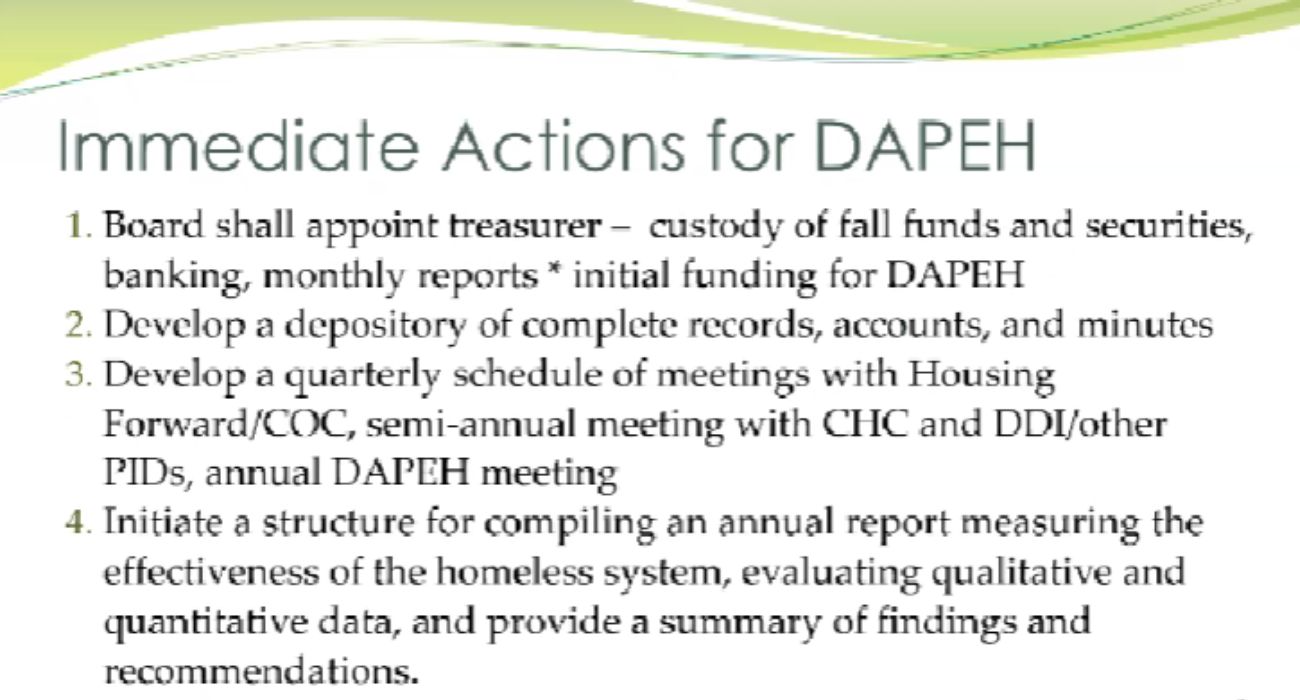A task force launched by Mayor Eric Johnson has recommended dissolving a local homelessness accountability partnership, but a City Council member who serves on the partnership is defending its usefulness.
Mayor Johnson’s Task Force on Homelessness Organizations, Policies, and Encampments (HOPE) released a report in June recommending the dissolution of the Dallas Area Partnership to End and Prevent Homelessness (DAPEH) — a group responsible for maintaining accountability among homeless response agencies across Dallas and the surrounding area, as previously reported by The Dallas Express.
During the DAPEH’s Thursday meeting, Council Member Cara Mendelsohn championed the purpose of the DAPEH and defended why it should remain active.
“There are no entities that assemble high level decision makers with the mission to provide homeless system accountability and solutions,” according to a presentation from Mendelsohn.
Mendelsohn serves as vice-chair of the DAPEH, having replaced former City Council Member Casey Thomas in May.
“DAPEH is a unique organization with a broad view of homelessness from the business, resident, elected-official, and stakeholder perspective,” her presentation read.
Furthermore, she noted that the DAPEH has a “unique ability” to enter loans or other similar agreements, contract for services, and issue debt.

Mendelsohn recommended the DAPEH take further advantage of its ability to maintain accountability among homelessness response organizations moving forward.

One of her suggested “immediate actions” for the DAPEH is to “initiate a structure for compiling an annual report measuring the effectiveness of the homeless system, evaluating qualitative and quantitative data, and provide a summary of findings and recommendations.”
Mendelsohn said a City Council committee will be permitted to review the task force’s report and accompanying recommendations to determine “possible council action” moving forward.
When it issued the recommendation to dissolve the DAPEH, along with the Citizen Homelessness Commission, the HOPE Task Force suggested the dissolutions would “reduce redundancy” in the City’s efforts to get homelessness and vagrancy under control.
Dallas County Commissioner Theresa Daniel, who serves as chair of the DAPEH, previously told The Dallas Express it “may be true” that the partnership and the City of Dallas have some redundancies but asked, “What about the rest of the county?”
The task force’s recommendation has also received criticism from homelessness response policy experts.
Michele Steeb, author and former CEO of Saint John’s Program for Real Change, previously told The Dallas Express she thinks the suggestion to eliminate it was “horrible.”
She explained that the DAPEH has “an extremely robust amount of power, but they haven’t exercised that power.”
Steeb said that “historically,” the DAPEH “hasn’t fulfilled its purpose,” but that does not mean doing away with the body entirely is the appropriate solution.
“If they start to fulfill that role, I think they’re a very, very necessary player in turning the situation around in Dallas,” she told The Dallas Express.
Furthermore, she asserted that “no crux of accountability” exists in Dallas’ homelessness response organizations.
“No one is looking at Dallas … and how it spends its money,” she said.
Meanwhile, homelessness and vagrancy remain a “major” problem for most Dallas residents, according to a satisfaction survey from the City of Dallas.
In San Antonio, the nonprofit Haven for Hope has shown success by offering housing and supportive services on a single campus to avoid the challenges of having several facilities scattered throughout the city. This is achieved through a partnership between the nonprofit and the City of San Antonio.
The City of Dallas has yet to pursue this “one-stop-shop” strategy despite it polling favorably among Dallas voters.


